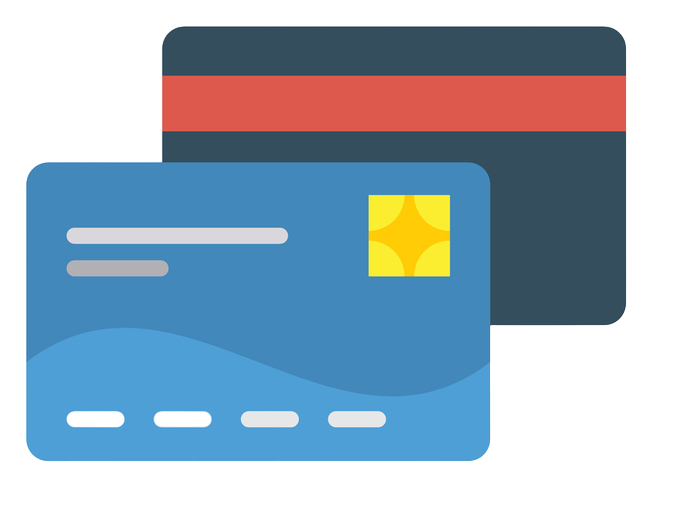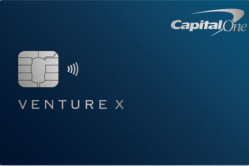The Military Wallet has partnered with CardRatings for our coverage of credit card products. The Military Wallet and CardRatings may receive a commission from card issuers.
We’re right in the thick of tax season, and one of the cool things about technology is that it is incredibly easy to file and pay your taxes online with EFTPS or other tools. One of the other tools available for paying your taxes is a credit card. I’ll be the first to tell you that it’s usually a bad idea to pay taxes with a credit card. There are two main reasons: transaction fees, which average right around 2% or slightly higher, and the possibility of paying interest on the amount you charged. That said, using a credit card to pay your taxes may be a good option under certain circumstances.
Let’s take a look at your options if you want to pay your taxes with a credit card and avoid a financial headache. We’ll take a look at fees, when it might be a good idea, and some good cards to use.
Can You Pay Your Taxes With a Credit Card?
Yes, you can. It turns out there are two IRS approved companies that are able to process credit card payments over the phone or on-line. Most companies charge a “convenience fee” to pay your tax bill with your credit card.
How Much Does it Cost to Pay Taxes with a Credit Card?
The IRS only authorizes a few companies to accept credit card transactions to pay your taxes. But processing credit cards isn’t free and the IRS allows these companies to charge a “Convenience Fee” to process your credit card payment. Here is what it will cost you to pay you taxes with your credit card (source: IRS).
- RBS WorldPay, Inc: 1.95%
- Link2Gov Corporation: 2.35%
- Official Payments Corporation: 2.35%
- TurboTax: 2.35%
- FileYourTaxes.com: 3.93%
Note: These companies charge a minimum processing fee of close to $4, and may also charge a fee for using your debit card to pay your taxes. Debit card processing fees are a flat rate for many of these companies. Always run the numbers before blindly swiping your card.

Compare the rates, fees, and rewards of top credit cards for military servicemembers and veterans, including cards with waived annual fees under the SCRA.
Does it Make Financial Sense to Pay Your Taxes with a Credit Card?
I’m not sure what your reward points are worth, but I doubt mine are worth 2.49% on my business card (at least not on this type of purchase). Since I owe $1,100 on my taxes this year, it would cost me $27.39 to pay my taxes. Keep in mind these fees are on top of tax software or accountant fees, and any transaction or interest charges if not paid in full. For me, it doesn’t make sense (¢ents) to use my rewards card.
While it doesn’t make sense in my situation, there can be benefits to paying your taxes with a credit card. If you have a credit card that offers 3-5% cash back, then this might not be a bad move if you have the funds to pay your taxes in full when the bill comes. It also frees up cash flow and allows you to defer payment for another month or so.
Some people may also find value in using a credit card so they can meet a spending tier to earn rewards points, a cash bonus, free airline tickets or other credit cards rewards. Finally, some people may find that a 0% introductory period or balance transfer period may make this an attractive option. These can give taxpayers a very low interest loan if they can’t afford to make the payment in full – this is much less expensive than paying penalties and fees associated with late payments!
Pros and Cons of Using a Credit Card for Paying Taxes
You can pay your taxes for free by check or by making an ACH transfer is free, so you have less expensive options available. The other potential downfall to using a credit card for paying taxes is the interest you may owe interest if you don’t pay your card in full.
That said, there are a few times when using a credit card might be a good idea:
- When your credit card rewards return more than the transaction costs
- If it can help you avoid paying IRS late fees and penalties
- You need the cash flow for your personal or business finances
- You can pay the credit card in full, or in a reasonable amount of time
- When your interest rate is minimal or zero
- When you can transfer the balance to a balance transfer credit card for a 0% interest rate.
Featured Credit Cards for Paying Taxes
Paying your taxes with a credit card may qualify you to earn cash back, points, or miles, which might be good if you have favorite cash back credit card or travel credit card. In some cases the rewards will be enough to offset any transaction fees. Under some circumstances, the convenience fee may be tax deductible because it is a cost associated with paying your taxes (check with your tax professional).
Here are some credit cards which might take the sting out of paying your taxes with a credit card.
The Military Wallet has partnered with CardRatings for our coverage of credit card products. The Military Wallet and CardRatings may receive a commission from card issuers.



Comments:
About the comments on this site:
These responses are not provided or commissioned by the bank advertiser. Responses have not been reviewed, approved or otherwise endorsed by the bank advertiser. It is not the bank advertiser’s responsibility to ensure all posts and/or questions are answered.
PigPennies says
The only two credit cards I use anymore are my 2% Fidelity AMEX and 1.5% Fidelity Visa. The Visa also goes up to 2% after something like $15k of yearly spending. I use the AMEX for almost everything, and the Visa for those places that don’t take AMEX.
I love cash back cards because I find I could usually buy more in “rewards” than the points or mileage actually get me. I also find that getting a flat 2% across the board on everything works out better than getting 1% on most and 5% on just some categories.
Ryan says
Those are both great cards. I don’t believe fidelity offers the 2% cash back card to new customers any longer, but it’s great if you are grandfathered in at the old rate!
I use my rewards cards for most purchases and pay them in full each month. It makes for a nice rebate once or twice a year!
PigPennies says
Oh, but they do! It’s the Schwab 2% card that doesn’t exist anymore. Fidelity posts rewards directly into my brokerage account, not my pocket, but I just adjust my monthly transfer to my Roth IRA accordingly so it works out as if I was getting the extra money in my checking account. Gotta love rewards cards!
I’ll have to check out RBS since my rewards are (slightly) more than their charge. Thanks for the tips!
Ryan says
Right – I was thinking about the Schwab card. 🙂
Ray says
Easy Money, I used my Citi CashRewards card which pays you back 5% for the first 3 months on anything you spend it on. Let’s see 2.49% from 5% = 2.51% profit.
I’ll pay off my credit card like I do every month and I just made 2.51% for using my credit card. I love how people are so negative with the possible negative events which could happen.
Obviously, If I don’t pay my credit card then I would be charged interest… really? I had no idea that would happen. – This is no different than anything else in life. If you know the rules and you pay your bills and read the fine print you will be fine. If you can’t function outside the box, then don’t use your credit card. I know how to use my credit and milk them for all the free rewards and 0% money they will throw at me.
This is a great deal if you can make more than the 2.49% fee, otherwise don’t use your CC.
The Sim says
I paid my taxes last year with a 0% purchase credit card, and intend to do it again this year. I have a card with sufficient line of credit with 14 months of 0% interest introductory rate remaining. I will pay minimum payments each month, keeping the cash in an online savings account earning ~3%, then pay it off in one lump sum at the end (it was better last year when you could get 4.5%). After taxes on the earned interest (!), it works out to pretty much 0 gain or loss for paying your taxes this way, but the benefit of not having to actually pay out most of the cash for an additional year (always nice to have cash on hand in case of emergency, if it doesn’t cost you anything). To my knowledge, these transactions are considered ordinary purchase transactions by the credit card companies (this was my experience last year), and will be treated as such on your bill. The extra 2.49% is simply included as part of the purchase price by the payment processor.
Dieselmania says
American Express once gave a promotion earning you double MR points for paying your taxes. $1100 = 2200 MR points = 2200 airlines miles. for an average ticket of $400 (25000 miles) your 2200 miles are worth $35.2 which is more than the $27.39 fee to pay your taxes with the card. It all depends on how you will be using those points you earn. In your case it was a small benefit. Compare to people who have to pay 20K to 30K in business taxes.
PS. you are still earning interest on your $1100 until you pay your American Express card 30 days after April 14th.
Jesse says
Honestly, on top of the whole “not worth it for rewards” Id add “not worth it due to hassle.” Applying for a cashback credit card, then getting it, activating it, paying taxes with it, then paying it off….just too much hassle for 20 bucks!
Alan says
Some points are really nice to play with, air miles for instance. Hard to get but worth it in the end. But I don’t know if they would be worth the 2.5% extra to pay on your cc. People should be careful with using there credit cards for taxes. Imagine what could happen if you couldn’t pay the cc out, just another ploy to get you to pay more.
Dividend growth investor says
I think that paying your taxes through a credit card does make sense for certain taxpayers. Let’s say you barely make ends meet and it would be difficult to come up with $1100. If you had to borrow money to pay IRS, you’d most likely end up in one of those payday loan places..
Another advantage to paying via a credit card is if you just signed up for a credit card with 0 percent interest for 6-12 months. Pay the $1100 now with a credit card and then make minimum monthly payments for 6-12 months and then pay off the credit card in full at the end of the zero percent offer period. At the same time collect interest payments (open one of those online accounts with bonuses).